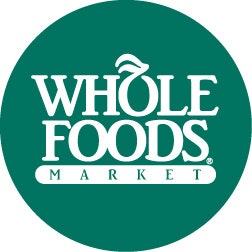Whole Foods Market, Inc (NASDAQ:WFM) has made a bold statement many of its major grocery rivals would never dare make. The organic and natural grocer is mandating that its suppliers label the products it sells in its aisles to disclose whether they contain genetically modified organisms (GMOs).
A major move like this — which absolutely goes against status quo — is why Whole Foods Market, Inc. (NASDAQ:WFM) is one of my favorite stocks as well as a component of the Prosocial Portfolio I’m managing for Fool.com.

Many Americans likely remain unaware that GMOs are present throughout our food supply. Most corn and soybeans are genetically modified at this point, and these are ingredients in scores of popular foods. A quick glance at nutritional labels will reveal how many popular conventional foods contain high-fructose corn syrup, for example.
Many of the products Whole Foods Market, Inc. (NASDAQ:WFM) already carries have already disclosed that they’re GMO-free on their labels. According to the grocer, customers respond very well, showing a healthy market for such products, with some enjoying 15% to 30% sales increases. Furthermore, organic products don’t need to be labeled as GMO-free, since that’s part of the organic definition.
The daring move comes after the California Proposition 37 defeat, which sought to require all food companies to label products including GMOs. That defeat came after powerful, cash-rich companies such as Monsanto Company (NYSE:MON) , PepsiCo, Inc. (NYSE:PEP) , and The Coca-Cola Company (NYSE:KO) shelled out millions in an anti-labeling campaign. Whole Foods Market, Inc. (NASDAQ:WFM) and The Hain Celestial Group, Inc. (NASDAQ:HAIN) were among the companies that backed GMO labeling.
Some scientists and companies, as well as the Food and Drug Administration, say genetically modified foods are no different than their counterparts whose genes haven’t been tinkered with.
Still, critics claim that there hasn’t been enough study, and some even say that scientific findings about negative impacts of GMO crops and their effect on health and the environment have been suppressed or too flippantly dismissed. However, the most compelling and commonsense part of the pro-labeling argument may simply be that consumers have a right to know what they’re eating and how it has come to be on their plates.
Seeds of change
Although Whole Foods has imposed a five-year deadline for its suppliers to get with the program, note that it’s the only major grocer that’s pushing its suppliers on this issue, and that’s a pretty amazing move. It’s already the major grocer that far and away carries the most certified non-GMO products in North America, with that number of products coming in at 3,300.





